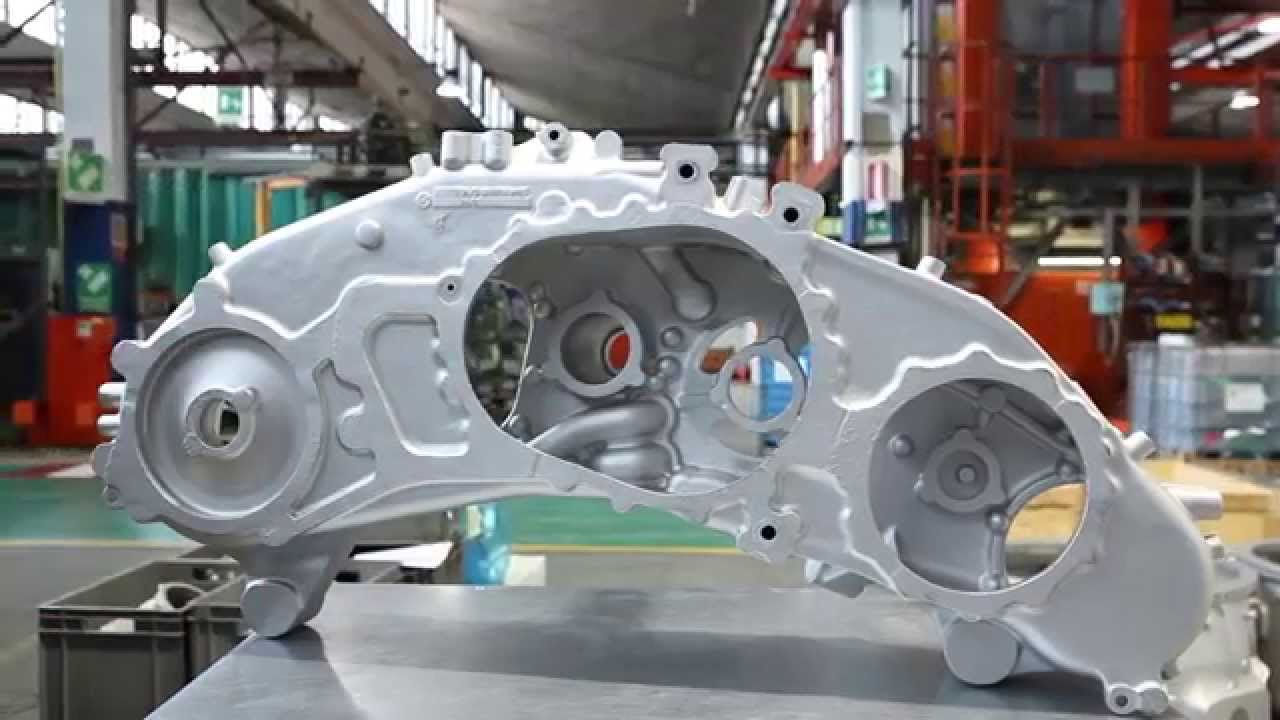
Magnesium (Mg) has a specific gravity of 1.74 g/cc, making it the lightest commonly used structural metal. Alloy AZ91D offers the highest strength of the commercial magnesium die casting alloys.
Alloys AM50A and AM60B are used in applications requiring good elongation, toughness and impact resistance, combined with reasonably good strength and excellent corrosion resistance. AM50A contains 5% aluminum whereas AM60B contains 6%. Ductility increases as aluminum content decreases, but at the expense of castability and strength. Therefore, the alloy with the highest aluminum content that will meet the application requirements should be chosen.
The following are among the more common magnesium applications: auto parts such as transfer cases, cam covers, steering columns, brake and clutch pedal brackets, clutch housings, seat frames, and dash board supports. Non-automotive products include chain saws, portable tools, vacuum cleaners, lawn mowers, household mixers, blood pressure testing machines, slide and movie projectors, cameras, radar indicators, tape recorders, sports equipment, calculators, postage meters, computers, telecommunications equipment, fractional horsepower motors, solar cells, snowmobiles and luggage.
Magnesium Alloy Benefits
The magnesium alloys exhibit the best machinability of any group of commercially used metal alloys, although special precautions must routinely be taken when machining or grinding magnesium castings.
Decorative finishes can be applied to magnesium die castings by painting, chromate and phosphate coatings, as well as plating. Magnesium castings can be effectively plated by applying an initial immersion zinc coating, followed by conventional copper nickel chromium plating procedure generally used for plating zinc metal/alloys.
Magnesium underbody auto parts, exposed to severe environmental conditions, are now used with no special coatings or protection. Other Mg die castings, such as computer parts, are often given a chemical treatment. This treatment or coating protects against tarnishing or slight surface corrosion which can occur on unprotected magnesium die castings during storage in moist atmospheres. Painting and anodizing further serve as an environmental corrosion barrier. Improved wear resistance can be provided to magnesium die castings with hard anodizing or hard chrome plating.
The high-purity magnesium alloys have physical and chemical characteristics that are superior to those of aluminum or zinc alloys. As a result, die casters can produce higher quality products — faster, easier, and for less money than ever before.
Some specific advantages:
Strength — Because its tensile yield strength is equal to that of aluminum alloys, magnesium has the highest strength-to-weight ratio of any commonly available material.
Lightweight — Despite its strength, magnesium is the lightest of all structural materials, weighing only two-thirds as much as aluminum and only one-fourth as much as zinc or steel. In high speed moving parts, magnesium’s low density also results in lower inertia and increased system performance.
Extended Die Life — Magnesium’s low affinity for iron and lower heat of fusion results in less thermal fatigue and extended die life. Experience has demonstrated that in some parts, die life may be three to five times longer than that experienced with aluminum. This becomes important when making a price comparison between the tooling cost of aluminum and magnesium.
Castability and Dimensional Stability — Magnesium offers high ductility, excellent dimensional stability, and can be cast to finished tolerances, often with zero draft holes and very thin (1 mm) walls. Since its shrinkage rates are consistent and predictable, and distortion is kept to a minimum, it is possible to achieve near-net-shape manufactured components.
High Thermal Conductivity — Magnesium disperses heat quickly, making it ideal for electronic enclosures, heat sinks and other items where heat must be dissipated from electronic devices.
Damping Capacity — Magnesium has an excellent capacity to absorb energy, greatly reducing noise and vibration. This ability to absorb energy also results in a good combination of high-impact strength and dent resistance.
Higher Production Rates — Magnesium’s low heat content per unit volume yields faster solidification and cooling, resulting in production rates 50-100% higher than similar aluminum die castings.
Machinability — While many magnesium castings require no machining or finishing at all, magnesium is recognized as the easiest of all structural metals to machine, requiring far less time and energy than aluminum.
Finishing — Although many castings require no finishing, a wide variety of finishes are available for decorative or corrosion-resistant purposes. Some of these are: solvent based paints, powder resin coatings, E-coat, electroless nickel plating, chromate coatings, anodization, and phosphate.
Magnesium Diecasting

